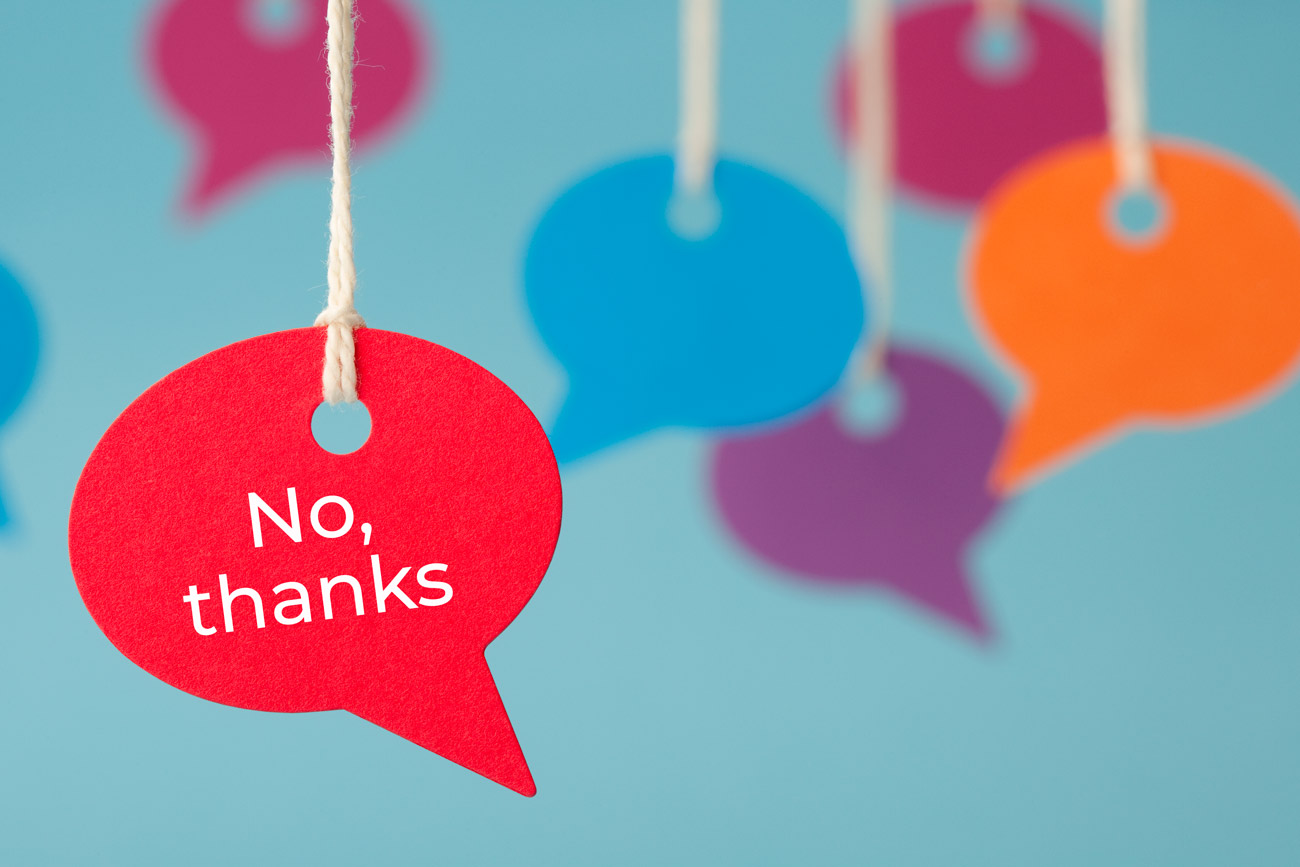
How To Say ‘No’ – And How It Can Help Your Mental Health
There are many reasons why we automatically say ‘yes’ in response to a social invitation: fear of missing out (FOMO); obligations to friends or family; pressure to keep up appearances; fear of being alone with oneself. Whatever the reason, this need to say ‘yes’ could be doing more harm than good to your mental health.
Dr Christos Kouimtsidis, Consultant Psychiatrist at The London Psychiatry Centre, says, “balance is key when it comes to your mental health and social life. While forming and maintaining positive relationships is important, as is alone time and self care. If you are feeling pressured to say ‘yes’ to invitations and requests when you would get more benefit from, say, going to bed early, it could be time to start using the word ‘no’ more freely in 2022.”
In this article, we look at why we find it so hard to say ‘no’, the benefits of focusing on yourself, and even how to say ‘no’ when you find it tough to do so.
The Psychology Of Saying ‘No’: What’s Stopping Us?
Letting down others
One of the main reasons we continue to say ‘yes’, even when we do not feel like it, is a fear of letting other people down. We do not want to be the reason why a friend’s party is a guest short, or why another friend has to find someone else to attend a concert with. However, while we like to maintain positive relationships, sometimes doing so can mean prioritising other people’s happiness above your own. This might be harmless to do once in a while (helping a friend shows that you care, and thus contributes to your own joy), but doing this too often can drain your energy, leaving you less able to help others or improve your own wellbeing.
Obligations and pressure
Oftentimes, we feel an obligation to friends and family to engage in events or activities because we are expected to contribute to the relationship, even though we may not want to. This is a cultural expectation to support the wellbeing of others who are close to you, as it is assumed that they should do the same when it is expected of them. In these situations, saying ‘no’ may risk an argument; on the other hand, saying ‘yes’ can make you form resentment towards the friend or family member, as well as putting your wellbeing at risk.
Fear of being alone, or fear of missing out
Alone time can be difficult, especially if you are not used to it, and especially if you are following the activity that you are missing out on through social media. When we are alone, we are often left with our thoughts and anxieties, and may find it hard to enjoy ourselves without the help of others.
The Benefits Of Saying ‘No’
Remember, saying ‘no’ does not make you a bad person. On the contrary, it can help you become a better version of yourself as you become empowered by setting boundaries. Here are some benefits of being assertive when it comes to your time and energy:
Stress management
Social situations can often bring about stress. You may be anxious about who to talk to, worried about when to arrive or leave, or even what to wear. By denying participation, you can save yourself this stress, which is especially important if you already have existing stress to deal with.
Allow you to work on yourself
Time to yourself is important. However, you do not have to spend it doing nothing. Why not try reading a self-improvement book, working on a hobby or skill, or engaging in other self care activities? By spending time with yourself that you would have spent otherwise engaged, you have the chance to greatly improve your wellbeing.
Improves communication skills
We have made it clear that saying ‘no’ is not easy, but doing so now will make it easier for you to reject invitations or requests in future. This ultimately improves your confidence when it comes to communication, which is essential when you need to put your needs first.
How To Say ‘No’ To Others
Unless you are giving a rejection to someone who is very supportive, saying ‘no’ may not be easy – even if your friend or family member is understanding, you may still feel uncomfortable rejecting them. However, you should remember that your mental health is important, and being able to confidently decline invitations and requests will contribute to your wellbeing. With that in mind, here are some tips on how to say ‘no’ with the least emotional impact to others and yourself:
Try not to give into emotion
Even if you have been going through a difficult time, giving into your emotions by getting upset, irritated or even angry can make the exchange uncomfortable, bring negative feelings to the relationship and make the other person feel bad for asking. Instead, try to keep your tone light and avoid using words that will provoke negative emotions in your or your friend or family member.
Keep the conversation short
While you might like to give an explanation as to why you are refusing an invitation or request, you are under no obligation to expand on this. In many circles, mental health is still a taboo topic, so if that is the case, a lengthy explanation may provoke an unwanted reaction. Instead, make a brief excuse then try to shift the attention away from yourself by changing the subject. If the subject makes you uncomfortable, do not revisit it unless it is brought up again. In which case, you should repeat your first response and, again, try not to expand too much.
Be empathetic
Some people may see a rejection as a mark of selfishness and might be hurt by this. If you are worried about this, try to be empathetic during the interaction, by thanking them for asking you, or suggesting an alternative. For example, if you are unable to help with a task, suggest another time during which you could provide support, or recommend someone who can do so in your place.
Avoid lying
It might seem easier to mask your needs to look after your mental health with another scenario that might seem more acceptable. However, lies can be difficult to maintain, they may bring about feelings of guilt, and they can do more harm than good if they are found out. Instead, be honest with others; if you cannot do this, try to be as brief as possible.
When To Get Help From A Professional
The above tips can be practised in your own time as a method of self care designed to improve your own wellbeing. However, if you are having a lot of trouble saying ‘no’ due to anxiety, and fear that this may be impacting your day to day life, it could be wise to talk to a professional to find out why this might be the case, and help you move forward.
At The London Psychiatry Centre, our friendly mental health consultants can provide in-person appointments, as well as telephone or video appointments for those unable to visit our London-based clinic. Get in touch with us using the details below:


